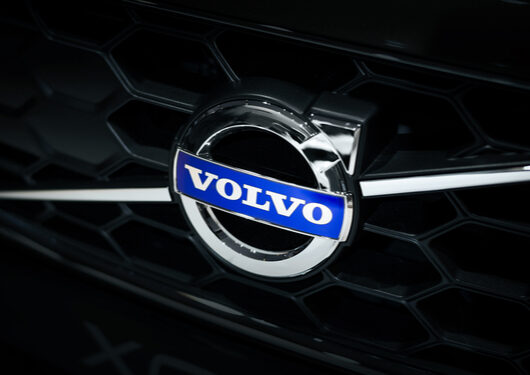
Visit Our Sponsors |
|
|
|
|
|
|
|
|
|
|
|
|
|
|
|
|
|
|
|
|
|
|
|
|
|
|
|
|
|
|
|
|
|
|
|
|
|
|
|
|
|
|
|
|
|
|
|
|
|
|
|
|
|
|
|
|
|
|
|
|
|
|
|
|
|
|

In its first ever stopover in Hong Kong for its 45,000 nautical mile lap around the globe, Volvo has blanketed the former site of Kai Tak airport with its latest models of cars, a virtual reality test track with Scandinavian scenery, and learning labs about both the vehicles and the race boats.
How they got from roadway to waterway — an unlikely link for a Swedish car maker that was also rescued by an unlikely Chinese buyer seven years ago. At the time, Volvo Cars was owned by Ford Motors, which was suffocating under the financial crisis and aftermath of the "cash for clunkers" experiment in 2009 — a failed car allowance rebate system. The U.S. federal program had intended to provide economic incentive for consumers to purchase more fuel-efficient vehicles, trading in their gas guzzlers. However, what was intended to provide stimulus to auto sales, quickly turned into a cash drain on Uncle Sam.
Industry consolidation
With Ford Motor at the brink of ruin, CEO Alan Mulally began divesting assets including Jaguar, Land Rover, Aston Martin, Volvo and reduced its stake in Japan's Mazda. Volvo Cars quickly found itself sold for $1.8bn to the highest bidder — billionaire Li Shufu — in the largest overseas acquisition by a Chinese automaker. "Our evolution into a global company, that would not have been possible without the support from Geely," says CEO Hakan Samuelsson. "They have been a very good owner for the company, quite opposite of what everyone thought at the beginning."
Li was and remains the chairman of Zhejiang Geely, the first non-state owned carmaker when it launched in 1997. Geely is the Chinese word for lucky, but its early renditions were anything but. Li single handedly scrapped three batches of poorly designed and built models before finally arriving at one that met his expectations. It wasn't until 2002 that he released the four-door subcompact sedan — Ziyoujian — known in English as "Freedom Ship" or "Free Cruiser." It was the first Chinese automobile ever to appear at an American auto show, but was actually designed by South Korea's Daewoo Motor — a sign of things to come for a brand that would ultimately recognize the value in outside partnerships.
It was around this time that Li said he started thinking about owning Volvo, his personal favorite car maker, one day. "It's a very good match because there is respect from both sides," Samuelsson describes the relationship. "Li is a passionate owner, not that interested in quarterly figures, but the long term strategy in our cars."
RELATED CONTENT
RELATED VIDEOS
Timely, incisive articles delivered directly to your inbox.






